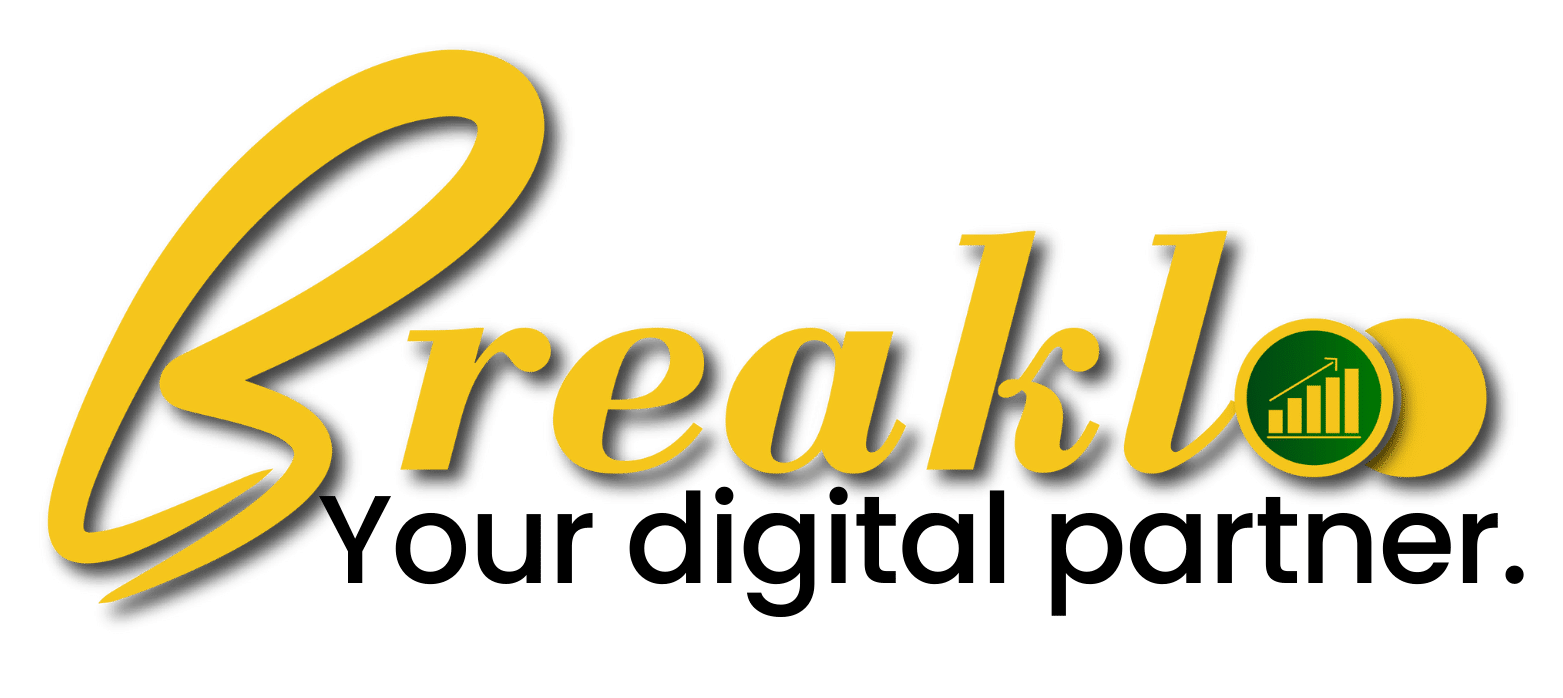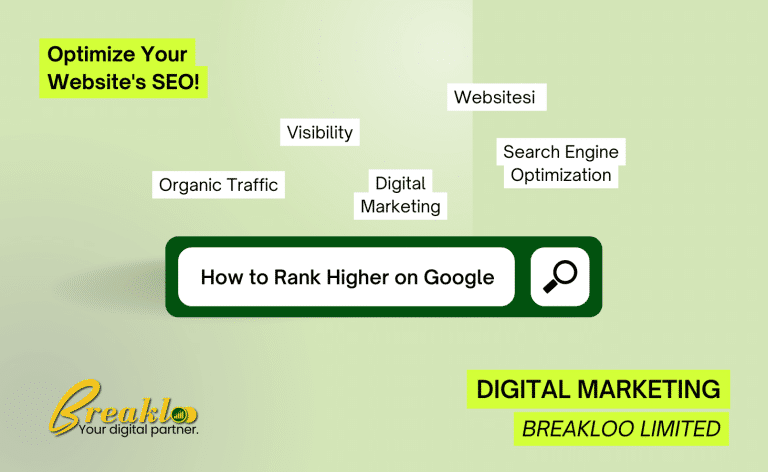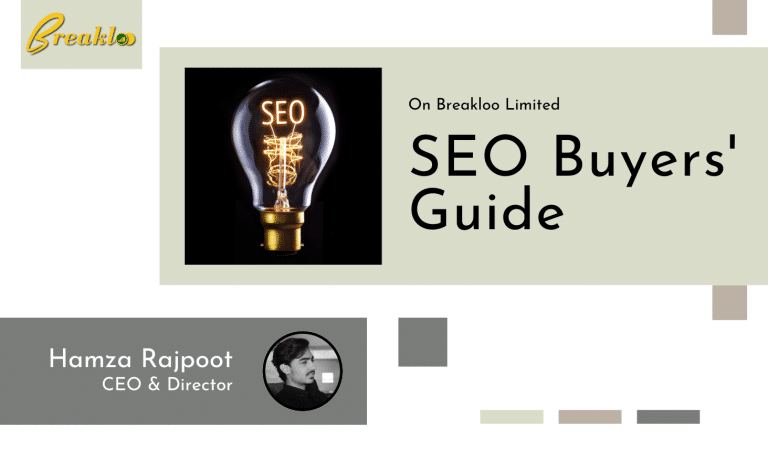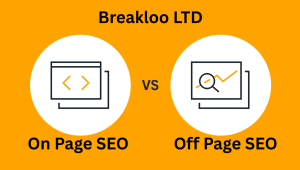How AI is Revolutionizing SEO: A Complete Guide for 2025 and Beyond
The evolution of search engine optimization (SEO) has reached a point where artificial intelligence (AI) is no longer just an add-on but a core component of modern digital marketing strategies. In 2025 and beyond, businesses are experiencing a massive shift in how they approach SEO, with AI-driven tools, algorithms, and machine learning models playing a dominant role. Traditional SEO focused mainly on manual keyword research, backlink building, and optimizing meta tags. However, AI is automating many of these processes, offering smarter, faster, and more accurate solutions. By understanding search intent, analyzing massive amounts of data, and adapting in real-time, AI is helping websites secure higher rankings on Google and other search engines. This transformation means that businesses that fail to adopt AI-powered SEO strategies risk falling behind in the ever-evolving digital landscape. As we move forward, AI will not only redefine how content is created and optimized but also how users interact with search engines, making it a critical factor for long-term SEO success.
AI-Powered SEO Strategies to Dominate Google Rankings in the Future
In the competitive world of online marketing, staying ahead of SEO trends is crucial. AI-powered SEO strategies offer a significant advantage by using machine learning algorithms to analyze ranking signals that were previously difficult for humans to understand. AI tools can predict which keywords will perform best, identify content gaps in your niche, and suggest changes that align with Google’s evolving algorithms. Unlike traditional SEO approaches that rely on trial and error, AI-driven SEO adapts dynamically to algorithm updates, ensuring websites maintain high rankings consistently. For example, tools like SurferSEO, Clearscope, and MarketMuse use AI to analyze top-ranking pages and provide actionable recommendations to outperform competitors. In the future, these strategies will extend beyond content optimization into link building, technical SEO audits, and personalized search experiences, making AI a must-have technology for dominating search engine rankings.
Role of Artificial Intelligence in Next-Generation Keyword Research
Keyword research is at the core of any SEO campaign, but traditional methods are time-consuming and often fail to capture emerging search trends. AI-powered keyword research tools such as SEMrush, Ahrefs with AI enhancements, and Google’s AI-driven Keyword Planner updates can analyze billions of search queries in real-time, identifying not only high-volume keywords but also long-tail and semantic keywords that match search intent more precisely. These tools can predict upcoming keyword trends months in advance, allowing businesses to target terms before competitors even recognize their potential. AI models understand contextual meaning, searcher behavior, and voice search patterns, creating opportunities to build content strategies that align perfectly with future demand. This level of predictive keyword research ensures a steady flow of organic traffic while maintaining relevance in an ever-changing search environment.
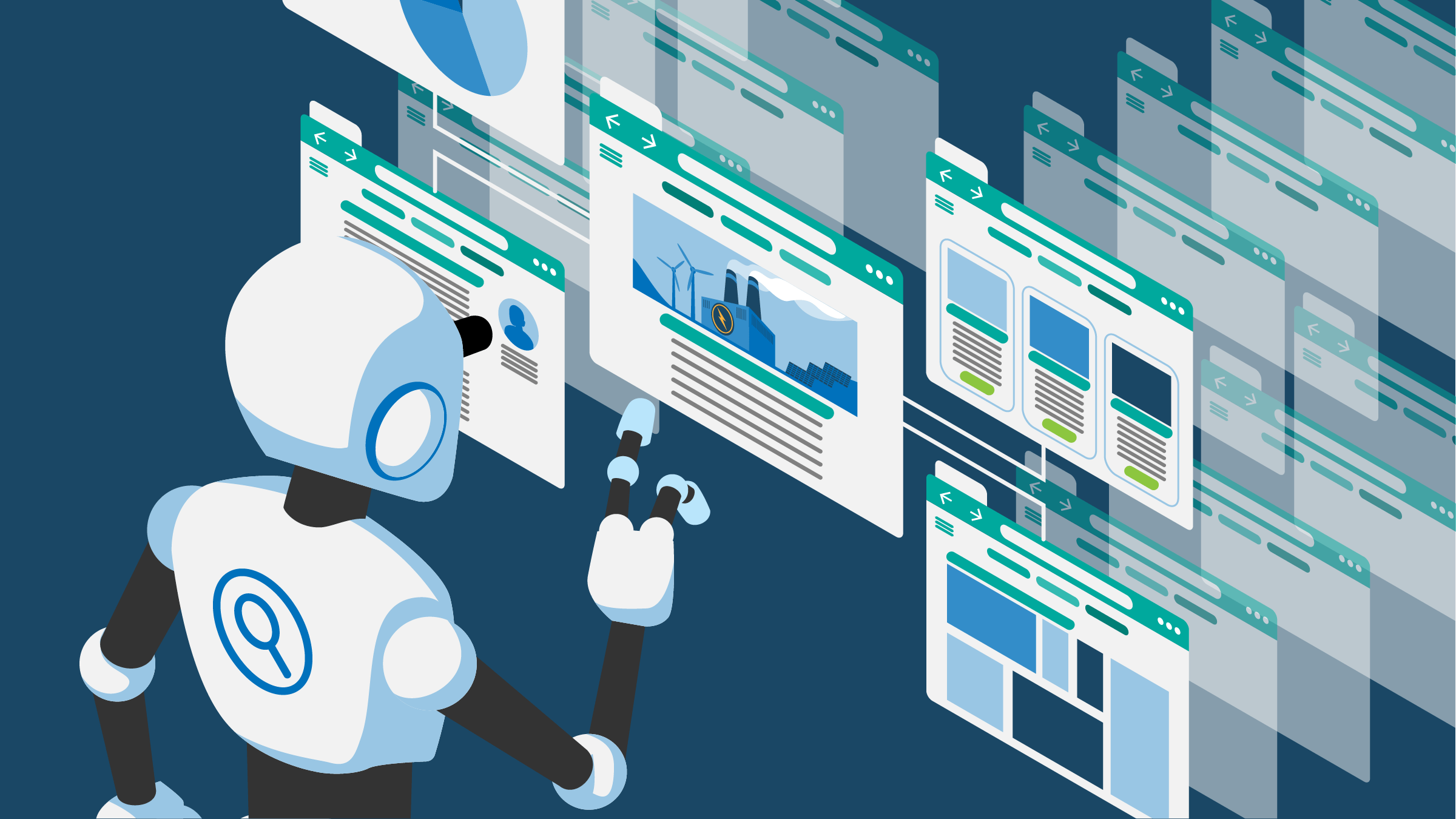
How AI is Changing the Way Search Engines Rank Websites
Search engines like Google, Bing, and Yahoo have evolved far beyond simple keyword matching. AI-driven algorithms now evaluate user experience, content quality, search intent satisfaction, site speed, mobile optimization, and engagement metrics before ranking pages. Technologies like RankBrain, BERT, and MUM allow search engines to understand human language more naturally, focusing on delivering the most valuable and relevant results to users. This means that keyword stuffing and outdated optimization techniques are no longer effective, and websites need to prioritize content quality and intent-based optimization. AI ensures that rankings are no longer solely based on backlinks or keyword density but on user-centric signals, making the competition for top search spots more sophisticated than ever before.
AI vs Traditional SEO: What Works Best for Future Rankings?
The debate between AI-driven SEO and traditional SEO methods is growing as more businesses adopt AI technology. While traditional SEO laid the foundation with manual keyword targeting, meta optimization, and link-building campaigns, it often lacked adaptability. AI-powered SEO strategies, on the other hand, leverage big data, automation, and predictive analytics to provide precise and scalable optimization. For example, AI can analyze user behavior patterns and instantly adjust content recommendations, while traditional SEO relies on historical data that may already be outdated. In the future, AI will likely outperform traditional methods because it continuously learns from new data, predicts algorithm changes, and helps marketers respond in real-time, resulting in sustainable, long-term ranking improvements.
Future of Voice Search: How AI Will Shape SEO in the Coming Years
Voice search is becoming a dominant force in SEO thanks to the widespread use of voice assistants like Siri, Alexa, and Google Assistant. AI is at the heart of this transformation, helping search engines process natural language queries and understand conversational context. Unlike typed searches, voice searches are often longer and more specific, requiring websites to optimize for semantic keywords and featured snippets. AI-driven tools can analyze voice search data, suggesting content formats and keywords tailored for spoken queries. As voice search adoption continues to grow in 2025, businesses that leverage AI to optimize for these new search patterns will capture more traffic and secure better rankings in voice-enabled search results.
AI-Powered Content Optimization: Writing for Search Engines and Humans
In 2025 and beyond, content optimization will be driven by artificial intelligence, bridging the gap between search engine requirements and user satisfaction. Traditional SEO often leaned heavily on keyword density and manual on-page tweaks, but this approach is quickly becoming obsolete. AI-powered content optimization tools, such as SurferSEO, Frase, Clearscope, and MarketMuse, analyze top-ranking pages in real-time, evaluating keyword placement, semantic relevance, readability, and engagement signals. These tools can also predict how search algorithms will value certain phrases or topics, ensuring that content is structured for both ranking potential and human readability. AI evaluates factors like dwell time, scroll depth, and click-through behavior to determine what keeps readers engaged, helping writers craft content that satisfies intent and holds attention. As Google’s AI algorithms become smarter, writing for search engines alone won’t work; instead, AI-assisted optimization ensures every article is both technically perfect for SEO and emotionally compelling for readers, creating a balance that leads to long-term rankings and brand authority.
Predictive SEO: Using AI to Forecast Ranking Opportunities
One of the most groundbreaking applications of AI in SEO is predictive analysis, which allows marketers to anticipate which keywords, topics, or pages will perform well in the future. Unlike traditional SEO that reacts to data after it’s collected, AI-powered predictive SEO tools use massive datasets and machine learning to forecast traffic spikes, keyword trends, and algorithm changes before they happen. Platforms like BrightEdge, SEMrush’s AI suite, and MarketMuse’s predictive models analyze historical performance, competitors’ activity, and upcoming search trends to give businesses a clear advantage. This means companies can create content today that ranks highly tomorrow, capitalizing on opportunities their competitors haven’t noticed yet. Predictive SEO is particularly valuable for seasonal industries, trending topics, and emerging technologies, where being first to rank can lead to massive traffic gains. As search engines evolve, predictive SEO will become a cornerstone strategy, helping businesses make data-driven decisions that keep them consistently ahead in rankings.
How Google’s AI Algorithms (RankBrain, BERT, MUM) Affect SEO Strategies
Google’s search engine has been transformed by artificial intelligence-driven algorithms, fundamentally changing how websites are ranked. RankBrain, introduced in 2015, allowed Google to interpret search intent better than ever before, focusing on relevance rather than raw keywords. BERT (Bidirectional Encoder Representations from Transformers) enhanced this capability, enabling the search engine to understand the context of words in a sentence, improving results for conversational and long-tail queries. MUM (Multitask Unified Model), Google’s latest AI advancement, goes even further, analyzing text, images, videos, and multiple languages to deliver more comprehensive results. These advancements mean that SEO is no longer about simply placing keywords in headings or meta tags. Content must now satisfy intent, context, and depth requirements, with AI-powered tools helping businesses align with these complex ranking factors. As these algorithms evolve, AI-assisted SEO will become essential, ensuring that websites are optimized for the nuanced, intelligent way Google evaluates relevance.
AI-Powered Link Building: Smarter Ways to Earn High-Quality Backlinks
Backlinking remains one of the most powerful ranking factors, but traditional link-building methods are slow and manual. AI-powered link-building solutions are revolutionizing the process by identifying high-authority domains, analyzing their relevance, and even predicting which outreach campaigns are likely to succeed. Platforms like Link Hunter AI, Pitchbox with machine learning, and Respona streamline the outreach process, using natural language generation to craft personalized pitches that earn genuine backlinks. AI also evaluates a site’s spam score, relevance to your niche, and historical link success rates, ensuring that every backlink acquired improves SEO without risking penalties. Furthermore, AI can analyze competitors’ backlink profiles and identify link gaps, offering a roadmap for outranking them. In 2025, link building will become a data-driven, AI-guided process, replacing guesswork with precision and helping websites secure the type of backlinks that drive sustainable ranking growth.
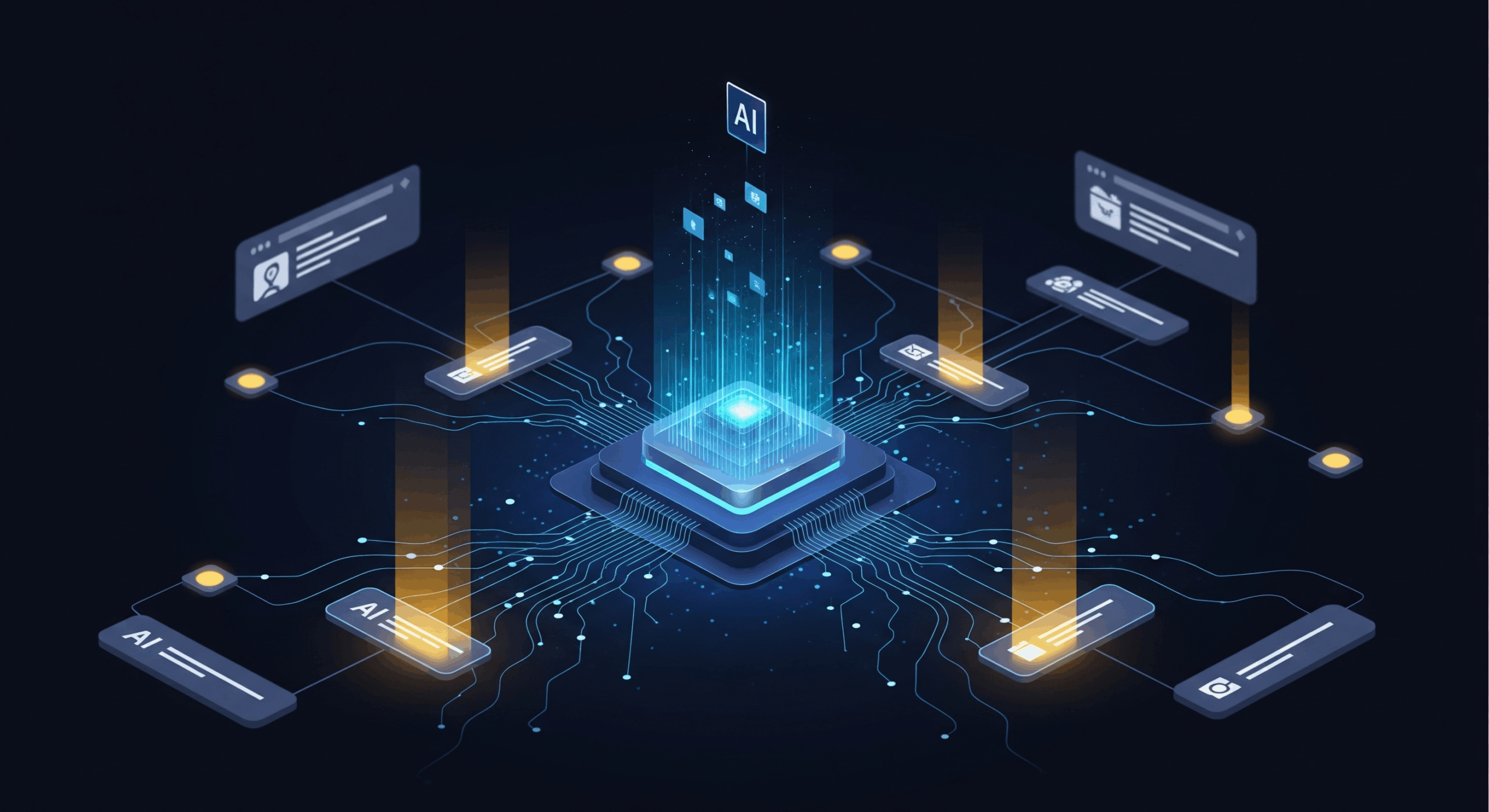
Automating Technical SEO with Artificial Intelligence Tools
Technical SEO has traditionally required extensive manual audits, crawling sites for errors, and implementing fixes that often take weeks to complete. With AI-powered technical SEO tools, these processes are now automated, faster, and more accurate than ever. Tools like Screaming Frog AI, Deepcrawl, and Botify Intelligence can scan thousands of web pages in seconds, identifying broken links, duplicate content, crawl errors, slow-loading scripts, and mobile responsiveness issues. Advanced AI algorithms can not only detect these errors but also suggest or implement fixes automatically, drastically reducing downtime and improving site health. Moreover, AI predictive models can warn you about potential technical issues that could arise after algorithm updates or large-scale site changes, preventing ranking drops before they happen. In the future, businesses that integrate AI automation into their technical SEO processes will enjoy more stable rankings, faster page indexing, and improved user experience, all of which lead to higher search engine visibility.
AI in Local SEO: Smarter Targeting for Businesses in 2025
Local SEO has always been essential for businesses aiming to capture nearby customers, but AI is taking local search optimization to the next level. Traditional local SEO strategies involved managing Google Business Profiles, optimizing for “near me” searches, and building citations. However, AI-powered local SEO tools, such as BrightLocal AI and Moz Local with machine learning enhancements, now offer predictive location-based insights, helping businesses target customers more effectively. These tools analyze search behavior patterns, foot traffic data, and even voice search trends in a specific area, enabling hyper-local targeting. AI also monitors real-time competitor activities, suggesting immediate actions to outrank them in map packs and local listings. As Google’s local algorithms get smarter, personalization will become the key to local rankings. AI can dynamically adjust your SEO strategy based on location-based user intent, ensuring that businesses in 2025 and beyond consistently dominate local search results with highly tailored campaigns.
Using Machine Learning to Analyze Competitor SEO Strategies
Competitor analysis has always been a crucial part of SEO, but manual competitor audits are limited in scope and speed. With machine learning-powered SEO tools, marketers can now gain real-time, in-depth insights into competitor strategies. Platforms like SEMrush, Ahrefs, and SpyFu with AI capabilities can analyze thousands of competitor web pages, backlinks, content strategies, and ranking changes, predicting future moves. AI can spot patterns that humans might miss, such as rising keyword trends competitors are targeting or the type of content that earns them backlinks. It can also forecast their potential growth trajectory, giving businesses a roadmap to outperform them proactively. With these insights, marketers can refine their own SEO strategies, find untapped keyword opportunities, replicate winning link-building tactics, and improve content quality to outshine competitors. In 2025, machine learning will make competitor SEO analysis more precise, strategic, and future-focused, offering a huge competitive advantage.
AI Chatbots and Their Role in Improving SEO and User Engagement
User engagement is one of the hidden ranking factors many businesses overlook, and AI chatbots are emerging as a powerful tool to improve it. When visitors land on your site, AI-powered chatbots such as Drift AI and Intercom GPT can instantly engage them, answer questions, guide them to relevant content, and increase the time spent on your site. These longer sessions, coupled with reduced bounce rates, send positive signals to search engines, improving rankings. Chatbots can also capture user intent in real time, collecting data that AI-powered SEO tools use to refine content strategies. In addition, AI chatbots improve conversion rates, as they provide personalized assistance to potential customers. As SEO becomes more experience-driven, AI chatbots will be integral to boosting user satisfaction, lead generation, and SEO rankings simultaneously, making them a must-have for modern websites.
How AI-Powered Tools Can Help You Rank Faster on Google
Ranking on Google has historically been a slow process, often taking months to see measurable results. AI-powered SEO tools are changing this reality by accelerating every stage of optimization. From automated keyword research to real-time content scoring and link-building suggestions, tools like Alli AI, SurferSEO, and Jasper SEO Mode can drastically cut the time needed to optimize a website. AI automates time-consuming tasks such as meta tag optimization, internal link structuring, and schema markup, allowing websites to become search-engine-ready within days rather than weeks. Moreover, AI continuously learns from results, suggesting improvements faster than manual analysis could. This speed is crucial in competitive niches, where early ranking often determines long-term visibility. As Google algorithms become more dynamic, the ability to react instantly using AI tools will separate fast-ranking websites from those left behind.
AI in Image and Video SEO: Optimizing for Visual Search
Visual content is dominating the digital landscape, and AI is revolutionizing how images and videos are optimized for SEO. With the rise of Google Lens, Pinterest Lens, and YouTube AI algorithms, search engines now rely on advanced image recognition to rank visual content. AI-powered tools like CloudVision API, Deep Image SEO, and vidIQ AI analyze image attributes, suggest better alt text, and even predict how visual elements influence rankings. For videos, AI can automatically generate keyword-rich transcripts, create optimized metadata, and identify segments likely to rank as featured clips. Visual search is expected to grow exponentially in 2025, meaning websites with AI-optimized images and videos will gain more organic traffic from search engines. This shift will make AI a critical component in multimedia SEO strategies, ensuring visual assets are discoverable, accessible, and engaging for both search engines and human users.
Future of AI-Driven Semantic Search and Its Impact on SEO
The future of search is moving beyond simple keywords toward semantic understanding, and AI is the driving force behind this evolution. Semantic search focuses on context, meaning, and intent, allowing search engines to provide results that truly match what users are looking for, even if they phrase their queries differently. With advancements like Google’s BERT and MUM, search engines can now analyze relationships between words, user history, and content depth to deliver highly relevant answers. Main line: In 2025, AI-driven semantic search will make keyword stuffing obsolete, replacing it with intent-focused, natural language content that ranks higher. AI-powered tools like InLinks and MarketMuse already suggest semantically related keywords and content topics to ensure complete topical coverage, increasing your chances of ranking for multiple related queries at once. Businesses that adopt semantic SEO strategies powered by AI will dominate the SERPs, as their content will align perfectly with the way search engines understand human queries.
How to Use AI for Creating Data-Driven SEO Content Plans
A strong SEO strategy begins with a data-driven content plan, and AI is making this process faster, smarter, and more precise. Traditional content planning relied heavily on guesswork and competitor imitation. Now, AI tools like SurferSEO Content Planner, Clearscope, and Frase AI can analyze thousands of keywords, search trends, and top-ranking pages in real time to craft a perfectly targeted content roadmap. AI models evaluate content gaps, semantic relevance, keyword clusters, and audience behavior patterns, identifying opportunities that manual research would overlook. Main line: AI transforms SEO content planning into a scientific process, predicting what topics will bring traffic, when they will trend, and how to structure them for maximum reach. This ensures that every article you publish is not only optimized for current algorithms but also prepared for future search engine developments, keeping your website consistently ahead of competitors.
The Role of AI in Detecting and Fixing SEO Errors Automatically
Technical SEO errors can silently kill your rankings if left unchecked. While traditional audits can take weeks and require manual fixes, AI-powered SEO error detection tools like Alli AI, Screaming Frog AI, and Botify can instantly scan entire websites, identifying crawl errors, duplicate content, missing schema, broken links, and indexing issues. What makes AI superior is its ability to predict potential future errors based on site performance patterns and past algorithm updates. Main line: AI doesn’t just detect SEO errors—it fixes them automatically or provides immediate, data-backed solutions that prevent ranking losses. As websites become more complex, AI ensures they remain technically sound, optimized for both users and search engines, and fully prepared to adapt to new algorithm requirements in real time.
Best AI SEO Tools for 2025 to Improve Rankings Effortlessly
The rise of AI has given birth to a wide range of powerful SEO tools designed to automate, analyze, and optimize every aspect of search marketing. Some of the most highly-rated tools for 2025 include SurferSEO, Clearscope, Jasper, MarketMuse, Alli AI, BrightEdge, SEMrush AI Suite, and Frase. These platforms use machine learning to provide real-time keyword insights, competitive analysis, predictive ranking forecasts, automated technical fixes, and high-quality content suggestions. Recent reviews highlight how SurferSEO’s AI content scoring, Jasper’s SEO-driven AI writing capabilities, and Alli AI’s automated on-page optimization have drastically reduced the time it takes to rank new pages. Main line: Using AI SEO tools is no longer optional—it’s a necessity for staying competitive in an AI-driven search environment. Businesses leveraging these tools see faster indexing, improved keyword targeting, and stronger, long-lasting rankings compared to traditional manual SEO methods.
AI-Powered Personalization and Its Effect on Search Rankings
Search engines are increasingly prioritizing personalized results, meaning that two users searching the same term may see different results based on their behavior, location, and preferences. AI enables websites to personalize content dynamically, adapting headlines, calls-to-action, and recommendations in real-time to match a user’s intent. Tools like Optimizely AI and Dynamic Yield are transforming SEO by improving click-through rates (CTR), dwell time, and overall engagement, all of which are key ranking signals. Main line: AI-powered personalization creates tailored user experiences that send strong positive signals to search engines, boosting rankings significantly. In the future, personalization will become a ranking requirement, meaning businesses that fail to deliver individualized experiences risk losing visibility to competitors who do.

How AI is Transforming E-commerce SEO for Higher Conversions
E-commerce websites face intense competition, with thousands of similar products competing for top search spots. AI is revolutionizing e-commerce SEO by automating product descriptions, keyword-rich meta tags, internal linking structures, and personalized recommendations. Platforms like Shopify AI SEO apps, Jasper for product copywriting, and Ahrefs AI integrations are enabling stores to rank faster while improving conversions. AI also analyzes buyer intent signals, identifying which products to promote and when to adjust pricing for maximum SEO impact.
AI doesn’t just improve traffic for e-commerce—it optimizes the entire funnel, from visibility to checkout, increasing sales directly from organic search. Businesses that adopt AI-driven SEO in 2025 will outperform competitors by providing more relevant search results, higher-quality content, and seamless shopping experiences that search engines reward.
AI in Featured Snippets Optimization: Securing Position Zero
Featured snippets, often referred to as Position Zero, are now one of the most valuable spots on Google’s search results page. They capture immediate attention and significantly increase click-through rates. AI-powered SEO tools are transforming how marketers approach snippet optimization. Platforms like Frase AI, Clearscope, and MarketMuse analyze the content that ranks in featured snippets and suggest ways to structure your information for maximum visibility. This includes generating concise, direct answers, optimizing for question-based queries, and adding semantic keywords that match Google’s natural language processing models. In 2025, with AI algorithms shaping search intent understanding, structured content created with AI recommendations will dominate featured snippets. Businesses that strategically use AI for snippet optimization will secure more top positions, improving their overall visibility and organic traffic without relying solely on traditional keyword rankings.
AI-Powered SEO Analytics: Turning Big Data into Actionable Insights
SEO generates massive amounts of data, from keyword rankings to traffic patterns, backlink profiles, and user behavior metrics. Traditionally, analyzing this data manually has been time-consuming and prone to human error. AI-powered SEO analytics platforms, such as BrightEdge, SEMrush AI Suite, and Moz Pro with machine learning integrations, process large datasets instantly, uncovering insights that are often missed through manual analysis. AI identifies content gaps, keyword opportunities, ranking fluctuations, and algorithmic penalties before they impact your site’s performance. It can even predict future traffic outcomes based on current optimization efforts, allowing marketers to make informed decisions quickly. In 2025, businesses using AI analytics will gain a significant competitive advantage, transforming raw data into actionable SEO strategies that drive measurable growth and improved ROI.
The Impact of AI on Mobile-First and Voice-Activated Search Results
With mobile searches accounting for over 70% of global search traffic, and voice search adoption growing rapidly, AI is playing a critical role in optimizing content for these platforms. Search engines now prioritize mobile-first indexing, meaning sites must be fast, responsive, and user-friendly. AI tools like Google Lighthouse AI and PageSpeed Insights with machine learning recommendations help developers optimize site performance across mobile devices. Additionally, AI assists in voice search optimization, analyzing long-tail conversational queries and structuring content to match voice assistant results. In 2025, businesses that use AI-powered strategies to improve mobile speed, optimize page experience, and adapt to voice search will dominate both mobile SERPs and voice-activated results, securing a strong advantage over competitors still relying on outdated desktop-focused SEO practices.
AI for Multilingual SEO: Smarter Global Optimization Techniques
Expanding to international markets requires more than just translating your website. Multilingual SEO powered by AI ensures that content is not only translated but also localized and contextually relevant for each target market. Tools like DeepL AI Translator, Weglot, and SEMrush Global AI Suite go beyond word-for-word translation, analyzing regional keyword trends, search intent differences, and local ranking factors. AI ensures that meta tags, headings, and even image alt text are fully optimized for each language variation, improving global visibility. Moreover, AI-powered hreflang implementation ensures search engines deliver the right content version to the right audience, preventing duplicate content issues. In 2025, multilingual SEO will be impossible to scale effectively without AI, as human translation alone cannot match the speed, accuracy, and intent-driven optimization that artificial intelligence provides.
How AI Will Redefine Search Intent and SERP Rankings in the Future
Search engines are increasingly focused on understanding user intent, and AI is shaping this evolution. Instead of merely matching keywords, search algorithms are now analyzing context, past search behavior, and predictive patterns to deliver highly personalized results. This shift is redefining how SERP rankings work. Websites will need to align their content with informational, navigational, transactional, and commercial intent, or risk losing visibility. AI-powered SEO tools are already capable of identifying the exact intent behind keywords, suggesting content formats and structures that align with both search engines and user expectations. In the future, SERP rankings will be dynamic, adapting in real time to individual user behavior, device type, and even location. Businesses adopting AI-driven intent optimization strategies will be better positioned to maintain top rankings in an ever-changing search environment.
Combining AI and Human Expertise for Perfect SEO Results
While AI-powered SEO strategies are becoming indispensable, human expertise remains crucial for achieving the best possible results. AI excels at processing large datasets, identifying ranking opportunities, and automating technical tasks, but it lacks human intuition, creativity, and brand storytelling ability. Successful SEO in 2025 will combine the precision of AI-driven analysis with the emotional connection and strategic thinking only humans can provide. For example, AI can suggest keywords, optimize headings, and predict trends, but a skilled SEO professional must decide which content topics best align with a brand’s voice and audience expectations. AI-human collaboration ensures that SEO strategies are not purely data-driven but also build authentic relationships with readers, leading to stronger trust signals and higher rankings over time. Businesses that embrace this balance will see better long-term results than those relying on either AI or human expertise alone.

Future-Proofing Your SEO Strategy with AI-Driven Automation
The rapid evolution of search algorithms means that static, traditional SEO tactics will quickly become outdated. AI-driven automation is the key to creating an SEO strategy that adapts to these constant changes. Automated AI tools can monitor Google algorithm updates, competitor activities, keyword fluctuations, and technical issues in real time, making instant adjustments without manual intervention. This proactive approach prevents sudden ranking drops, ensures consistent optimization, and provides a level of scalability that human teams cannot match alone. Future-proofing your SEO strategy means integrating AI-powered site audits, automated schema updates, predictive keyword targeting, and real-time content adjustments to stay ahead of search engine changes. Companies that rely on AI for continuous optimization will enjoy more stable and long-lasting rankings compared to competitors who only react after traffic declines.
AI-Powered Algorithm Updates: What Businesses Need to Prepare For
Search engines are increasingly using AI to update their own algorithms, making ranking factors more dynamic and unpredictable. Google’s RankBrain, BERT, MUM, and upcoming AI-driven updates focus on natural language understanding, user experience, search intent, and multi-modal content analysis. This means SEO strategies that worked yesterday may not work tomorrow. AI-powered SEO tools are now capable of tracking early signals of algorithm changes, allowing businesses to adjust content before penalties or ranking drops occur. In the future, algorithm volatility will increase, with updates rolling out faster and adapting to user behavior in real time. Businesses that embrace AI-driven monitoring and optimization will remain resilient, while outdated, manual approaches will struggle to keep up with the speed of change in search engine ranking systems.
Conclusion: The Future of SEO is AI-Driven and Data-Centric
As we approach 2025 and beyond, artificial intelligence will no longer be optional in SEO—it will be the foundation of every successful digital marketing strategy. From predictive keyword research, AI-powered content optimization, automated technical audits, semantic search alignment, voice search optimization, to smarter link building and analytics, AI is reshaping every facet of SEO. Businesses that integrate AI-powered SEO tools with human expertise will dominate rankings, while those clinging to outdated, manual methods risk losing visibility entirely. The future of SEO will be fast, adaptive, predictive, and user-centric, with AI leading the way to higher rankings, improved engagement, and sustainable online growth.
